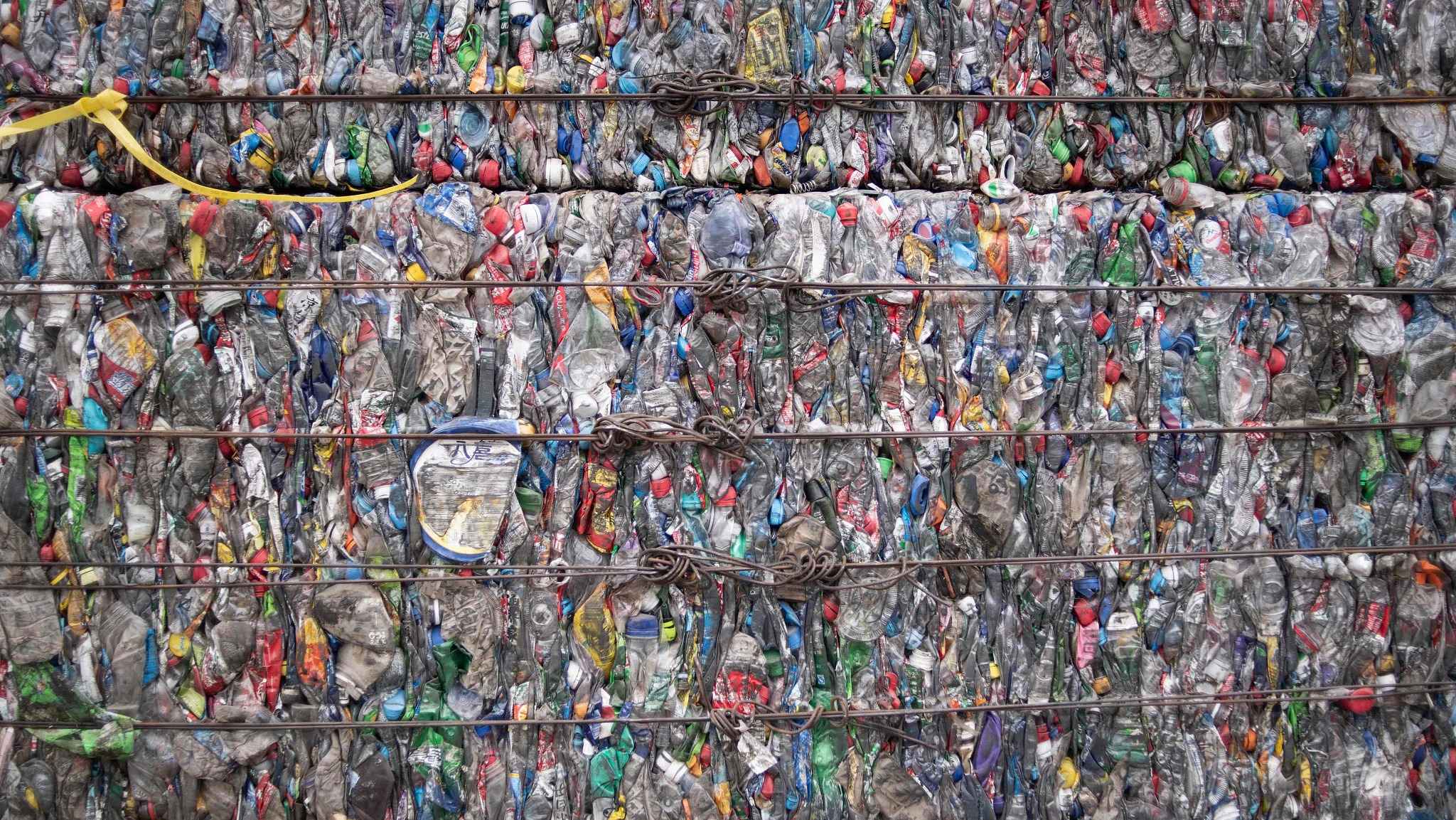
Earlier this year, China implemented National Sword, a policy banning the import of 24 types of waste including non-industrial plastic. (Photo: CGTN)
New Zealand recently announced single-use plastic bags would be phased out over the next year. The Kiwi nation has become the lastest country to ban at least one plastic item in efforts to reduce pollution.
The announcement comes as no surprise as other developing countries have started implementing their own plastic bans in the face of a growing economy while raising environmental protection awareness.
Along with the determination to reduce white pollution, China started banning single-use plastic bags in 2008. Shoppers in China are charged for plastic bags, or they can use their own bags.
A ban on waste imports from China was recently enforced that saw tons of plastic trash diverted elsewhere. It is obvious that recycling plastic has become a serious issue, but it still has a long way to go.
Should society consider new alternatives to relieve pressure on single-use plastic products?
Actually, many developing countries use advanced plastic recycling technology instead of ignoring it. Last month, with the help of Chinese technology, a Chilean company succeeded in making "non-plastic" bags that dissolve in cold water rather than taking centuries to disintegrate, according to Xinhua News Agency.
Chile has become the first South American country to phase out single-use plastic bags not only by banning them but by improving the cost-effective formula of plastic recycling technology, the most promising movement for reducing the plastic waste.
“I think it is probably going to get harder before it gets easier,” says Jenna Jambeck, a University of Georgia engineering professor and National Geographic explorer who has been focused on the study of plastic recycling.
“It just takes time. It will take time to develop and expand domestic systems and markets and to change product design," Jambeck explained.
For now, Jambeck has been pleased with what she has seen so far, such as edible spoons from India and water-soluble bags from China.
“We are more than willing to see further alliances from Western countries like New Zealand to drive plastic recycling forward in the near future,” she added.


